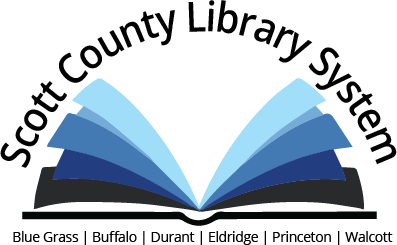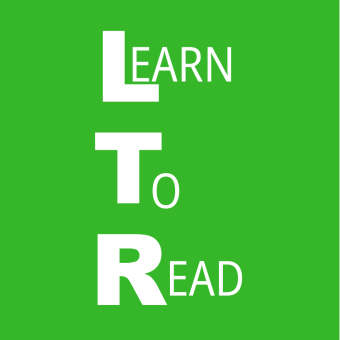Learn to Read - Resources for Developing Basic Skills
There is a reading crisis in the United States, with as many as 40 percent of kids unable to read at grade level. Factors such as increased screen time, shortened attention spans, poverty, and the COVID-19 lockdowns play a role; however many of these factors can be mediated by systematic phonics instruction. (Phonics is learning the sounds of letters and letter combinations and being able to break down (or decode) words based on these sounds).
The Scott County Library System is committed to supporting emergent readers with decodable texts and phonics resources based on Science of Reading research. Thanks to a 2025 Regional Development Authority (RDA) grant, we have launched our Learn to Read collection at all branches.
FINDING LIBRARY RESOURCES
Scott County's Learn to Read Collection: This collection focuses on phonics instruction, decoding letter sounds, word families, and sight words. It is geared toward preschool through second grade kids who are learning to read. See it in the Vega Enhanced Catalog.
Alphabet: Start with the alphabet; recognizing the shapes of upper and lowercase letters and practicing the sounds they make.
Phonics: Check out books to practice specific phonics skills. A few series to check out include: Newmark Learning, Stairway Decodables, Bob Books, Little Blossom Stories, Dandelion Launchers, Hooked on Phonics, and DK Super Phonics.
Letter sounds: Material related to specific letter sounds and combinations.
Word families: Work on word families, or groups of words that share a common pattern, which will help children begin to recognize patterns for themselves.
Sight words: Most words can be decoded, but a few need to be learned by heart. Practice with the Dolch Sight Words list at home.
For Parents & Teachers: Check out these Science of Reading books and get tips for teaching children how to read.
BEYOND THE BOOK
DVDs: These videos focusing on phonics require a DVD player or computer disc drive.
Read Alongs: Read Alongs are print books with a small audio player attached. Listen out loud or plug in headphones while following along with the words and pictures. They also include a learning mode, where the reader can answer questions about the text.
WhaZoodles: A WhaZoodle is an audio speaker that has games, songs, stories and more based on a theme -- in this case: phonics, alphabet, and words!
eBooks: Check out our digital phonics offerings on the Libby app (compatible with most devices).
FREE PHONICS WEBSITES
Note: There are many great phonics apps and sites that do require a subscription or payment, most offer free trials for each individual to explore.
Lalilo: This is a free tool for teachers and parents that has personalized exercises and customized lesson plans.
Letterland: Letterland sells phonics curriculum, but also has a YouTube channel dedicated to letter sounds with fun characters to help kids remember what they learn.
Literacy LIFTER: This free tool is designed to help educators and caregivers support students' early handwriting and reading skills. All materials are available in English and Spanish.
Lit Lab AI: This AI tool, which has free components, allows users to target specific skills and write their own decodables for practice. Several of the pre-made decodables align with UFLI's curriculum.
Starfall: Designed for kids ages 2-8, there are books, games, songs, and puzzles focused on the building blocks of decoding the English language and learning to read, along with other subjects such as math.
Teach Your Monster to Read: This is a game-based learning system focused on making a monster and teaching it to read over the course of three games.
LEARNING MORE
Association for Library Service to Children (ALSC): Several blog articles talk about the importance of play, singing, and other strategies to incorporate the Science of Reading into the library and into the home.
Iowa Department of Education: The literacy instruction philosophy and Science of Reading standards put out by the state of Iowa.
National Center on Improving Literacy: A federally-funded center that focuses on free, evidence-based resources for families and teachers, with a special focus on dyslexic learners.
Novel Idea podcast: The Iowa Reading Research Center put together a podcast on the history of literacy instruction in the U.S. including controversies and debates still happening today. Also check out the Caregiver Hub for simple explanations of what is being taught and what it means for your child.
Reading Rockets: This is a national public media literacy initiative to educate people on how kids learn to read, why so many struggle, and how interested adults can help. They have a self-paced literacy module for teachers and a PBS show about Launching Young Readers.
Sold a Story: In this podcast, journalist Emily Hanford exposes the curriculum issues in U.S. schools that got away from teaching phonics instructions and the wide-ranging consequences spawned by the whole-word movement.
Stanford research study: A study on how brain wave research supports Science of Reading claims published in 2015 by Stanford University researchers. The full study can be linked to from this article.
University of Florida Literacy Institute (UFLI): UFLI focuses on teaching teachers how to teach reading using Science of Reading research. The Foundations Toolbox includes lesson plans and suggestions on decodable readers to use for specific phonics skills.

